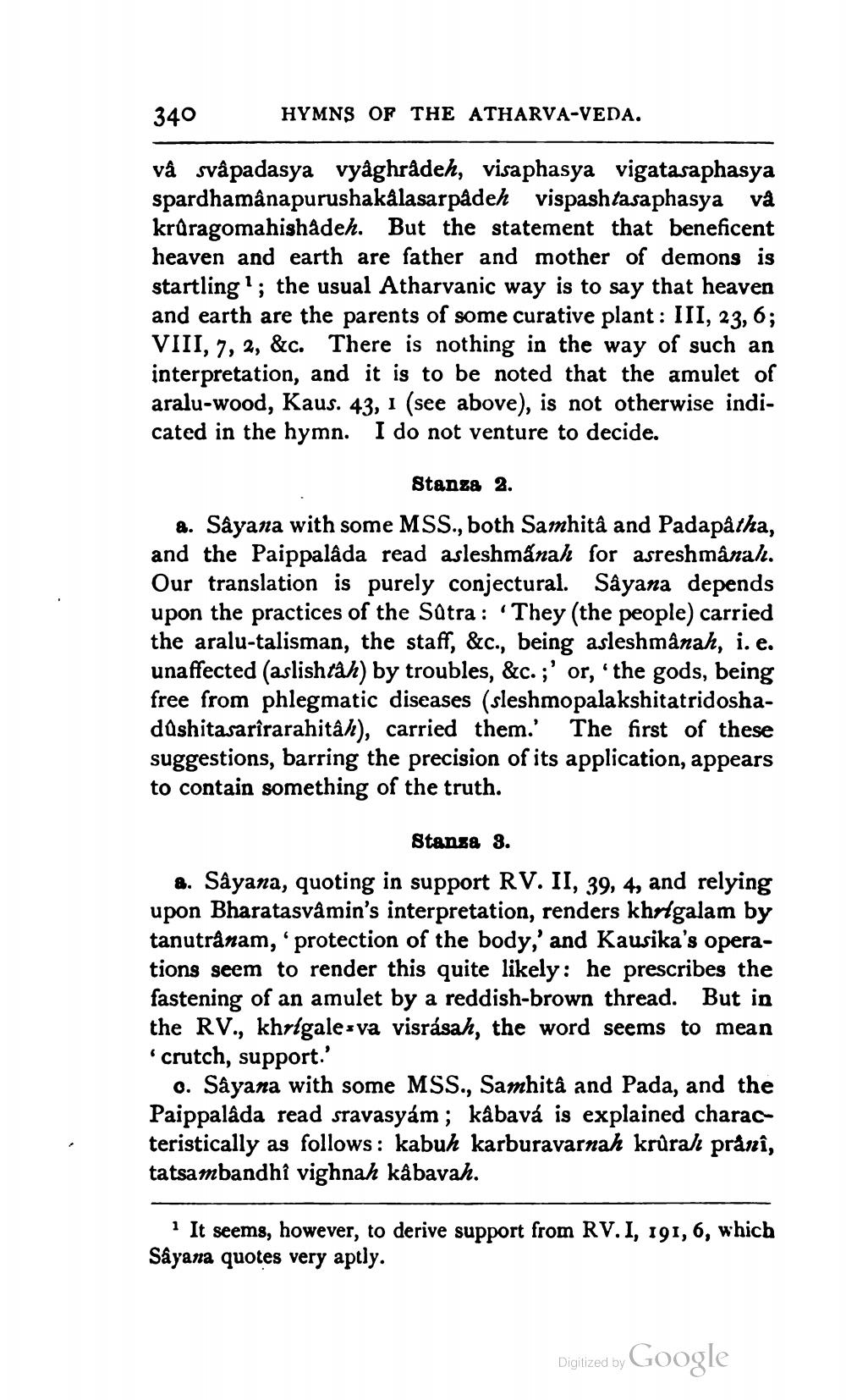________________
340
HYMNS OF THE ATHARVA-VEDA.
vå svåpadasya vyâghradeh, visaphasya vigatasaphasya spardhamânapurushakalasarpådeh vispashtasaphasya và krůragomahishadeh. But the statement that beneficent heaven and earth are father and mother of demons is startling '; the usual Atharvanic way is to say that heaven and earth are the parents of some curative plant: III, 23, 6; VIII, 7, 2, &c. There is nothing in the way of such an interpretation, and it is to be noted that the amulet of aralu-wood, Kaus. 43, 1 (see above), is not otherwise indicated in the hymn. I do not venture to decide.
Stanza 2.
a. Sayana with some MSS., both Samhitâ and Padapåtha, and the Paippalâda read asleshmanah for asreshmânah. Our translation is purely conjectural. Sayana depends upon the practices of the Satra: 'They (the people) carried the aralu-talisman, the staff, &c., being asleshmanah, i.e. unaffected (aslishtàh) by troubles, &c. ;' or, the gods, being free from phlegmatic diseases (sleshmopalakshitatridoshadushitasarîrarahitân), carried them.' The first of these suggestions, barring the precision of its application, appears to contain something of the truth.
Stansa 3. a. Sayana, quoting in support RV. II, 39, 4, and relying upon Bharatasvâmin's interpretation, renders khrlgalam by tanutrânam, protection of the body,' and Kausika's operations seem to render this quite likely: he prescribes the fastening of an amulet by a reddish-brown thread. But in the RV., khrigalesva visrásah, the word seems to mean crutch, support.
6. Sayana with some MSS., Samhita and Pada, and the Paippalada read sravasyám; kâbavá is explained characteristically as follows: kabuh karburavarnah krûrah prånî, tatsambandhi vighnah kåbavah.
It seems, however, to derive support from RV.I, 191, 6, which Sâyana quotes very aptly.
Digitized by Google




